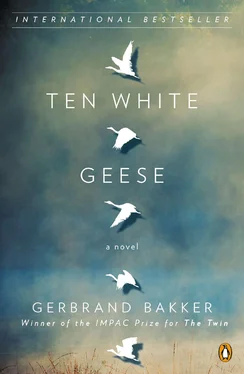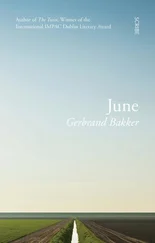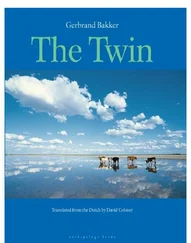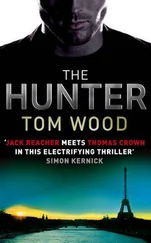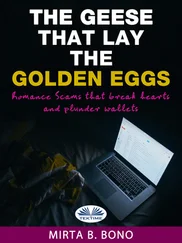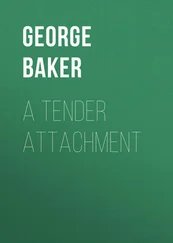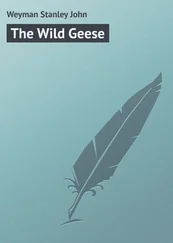*
A quarter of an hour later they stopped at a T-junction. Bram had said, You have reached your destination, and — just before the policeman pulled over — Try to make a U-turn. ‘No, Bram,’ the policeman said. ‘You’re done.’ Then he took the map from the husband. Now he was standing in front of the car with the map spread out on the bonnet. The car door was open. It smelt the way Amsterdam can smell in March with the wind from a certain direction: farmers’ spring air. The policeman turned round and peered at a narrow, sunken lane that ran uphill, tufts of grass sticking up through the middle of the asphalt. There was an incredible number of sheep in the field beside the lane. It was damp. The dashboard clock said quarter to one, from which the husband subtracted one hour. He was strangely nervous. It was Boxing Day in Wales and in a quarter of an hour he might be seeing his wife again.
He keeps imagining the summit. The way he’d stood there, his breath visible, the Horseshoe, the Irish Sea, the lakes, the gradual slope down to Llanberis, as if the mountain had known all along that they would one day build a railway there. A layer of snow. It was a shame that you were never alone in places like this. The new top station, Hafod Eryri, was closed, sheets of hardboard protecting the large windows, a deep snowdrift against the back wall. It wasn’t busy, but the people who were there were almost all talking into mobiles, letting someone know they’d made it to the top. When he got back to where he’d left her — at a run — and didn’t find her, he looked over the edge, into the depths, before running on.
*
But now he’s stuck in the cellar of an old pigsty. Without a mobile. Even if he wanted to let someone know he was down below ground level, he couldn’t. Standing up straight is impossible. She’s laid cushions on the floor, rugs and blankets. It’s only after she turns off the light in the pigsty that he uses a match to light a candle. One candle, not both. They’re in the necks of two wine bottles. It can’t get really dark anyway, not with the house lights on and casting bright rectangles on the lawn. He can see them through the wide, four-inch window. In a plastic bag there’s bread and packets of biscuits, butter, a few bananas, a knife, cheese and sliced cold lamb. Is that a joke? He almost smiles. Does she think he’s going to eat that? There are three bottles of red wine with screw tops, one bottle of white, seven bottles of water, crisps. A glass and a plate. He hasn’t even looked for a second Christmas present. It sounds like she’s moving something with the wheelbarrow, footsteps on the crushed slate. The last thing he hears is classical music: the radio must be turned up loud with the window or front door open. Closed again, a bit later. Either that or she’s turned the radio off. He doesn’t understand, but he’s not really surprised. He still pushes hard on the trapdoor and feels the dust drift down on his head. He swears under his breath. ‘ Sguthan ,’ he says, without feeling angry, and ‘ Iesu Grist .’ He eats and drinks, but not too much. This could last a week. And the likelihood of it being his father who ends up liberating him is something he can’t do a thing about. He pulls off his boots and coat and finally removes his hat. He lies down on the cushions without undressing further and pulls the blankets and rugs up over himself. He blows out the candle. He’s not cold. The lights are still on in the house. He sees himself on top of Yr Wyddfa, inhaling the biting air, screwing up his eyes in the glare of the snow.
*
Birds are singing the next morning. With a view of nothing — yes, beams and boards — he could think it’s spring. In the course of the night, the cold has risen through the floor after all. He sits up, eats a piece of bread with cheese, drinks some water. And waits. Maybe I got her pregnant, he thinks. He stands up to look out through the window. The grass is damp, and when he looks again a little later, he sees that the sun has advanced quite far. Only now does he notice that she has put the three flowering plants from the kitchen windowsill in front of the cellar window. When he sticks a finger in one of the pots, he feels that the soil is damp.
He still can’t work out why he stood there on the lawn like a deer caught in headlights, the headlights of the black pickup parked next to the house. He could just as easily have walked away, climbing back over the wall. Sam had sat trembling against his leg; that was how desperate he was to go to his master. She had given him a sign: incomprehensible, and yet, a sign. Maybe that was why.
*
He used to be able to stand upright in here, he even had to stretch to look out through the window at his mother and Mrs Evans, sitting on strange chairs in the shade of the alders, next to the stream. It was always cool in the cellar, he didn’t understand them staying outside. A couple of glasses of home-made lemonade with ice cubes on a wobbly table. Standing on his toes to look at the women, listening to his mother’s voice. Sometimes she’d call out, ‘Bradwen!’ and Mrs Evans would tell her to leave him in peace, ‘ Da chi’n gwybod lle mae o .’ And always packing up when his father approached the chairs and table, finished with the sheep and ready to go home, sweat on his nose and brow.
The birds fall silent. Maybe they’ve figured out it’s Boxing Day, or midwinter at least, and not a gorgeous day in spring. He starts pacing back and forth, bent over in the green-tiled cellar, pressing once more against the trapdoor, which still doesn’t give, of course. Dust falls on the concrete steps. He imagines a little boy, a toddler: on a swing or trying to kick a non-cooperative ball. After a while his back starts to hurt and he lies down on the cushions. He’s no longer cold. If only Sam was here, even if he did always hold something back, looking over his shoulder, never unconditionally his. He unbuttons his jeans and pulls a blanket over himself.
*
Hours later, as he’s eating some more bread and cheese, he hears a car. Not driving away, but arriving. He keeps still and stops chewing. He’d rather be stuck in a cellar than see his father again this soon. Be sure to have enough cash for the lost geese . As if the woman is the fox who’s devouring the birds. Car doors open and slam shut, dull and distant, the car hasn’t stopped close to the house. Two male voices. They weren’t supposed to come until 1 January. Footsteps on the path. They’re not speaking Welsh. It sounds like her language: he recognises the harsh gutturals, the strange vowels. He looks around. And again. The flowering plants, the cold lamb, the two wine-bottle candleholders. He puts his boots on and pulls on his beanie. Then he eats another chunk of cheese with a slice of bread, washing it down with a glass of red wine. When he’s finished, he starts to bang on the trapdoor.
*
‘Who are you?’ one of the men asks. A man with short black hair.
‘Bradwen,’ he says. ‘I’m Bradwen Jones.’
‘Where is Agnes ?’ The other man asks that. He’s got his lower leg in a cast and is on crutches. He’s pronounced the name the Dutch way, at the back of his throat, and Bradwen doesn’t understand.
‘What?’
‘Where is Agnes ? From Amsterdam?’
‘Is that a name?’
‘Of course. Agnes .’
‘There’s no Agnes here. Who are you?’
The men stay where they are in the doorway, neither of them answering. The boy is standing on the concrete steps. Blinding yellow sunlight shines between their legs, making him raise a hand to shade his eyes.
‘No Agnes ?’ says the man with the cast.
Читать дальше
